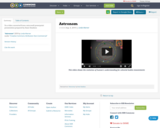
Its a video converted from a microsoft powerpoint presentation prepared by Amer Deaibess
- Subject:
- Astronomy
- Physical Science
- Physics
- Material Type:
- Case Study
- Date Added:
- 11/07/2018

Its a video converted from a microsoft powerpoint presentation prepared by Amer Deaibess
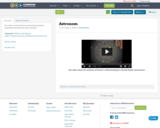
Its a video converted from a microsoft powerpoint presentation prepared by Amer Deaibess
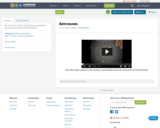
this resource is a video converted from a powerpoint presentation prepared by Amer Deaibess
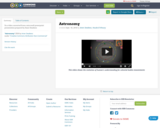
Its a video converted from a microsoft powerpoint presentation prepared by Amer Deaibess
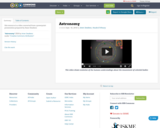
this resource is a video converted from a powerpoint presentation prepared by Amer Deaibess

This text includes 25 reading assignments for an introductory astronomy course. They have been modified from the OpenStax Astronomy 2e and College Physics 2e (linked in related resources below) textbooks to order the topics in a logical manner for a one semester course and provide shortened (~10-20 pages) readings intended for biweekly reading assignments. The text also features enhanced treatment of the Newton's Laws, Energy, and Optics content that go beyond the typical introductory astronomy course for non-majors.
Course connections: This content was built for an introductory survey of astronomy course (e.g., PHYS 103), including apparent motions of objects in the sky, light, telescopes, solar system objects, exoplanets, the sun, stars, galaxies, and cosmology. Basic math skills (arithmetic, powers, scientific notation, unit conversions) will be used frequently. This course is designed for students in all majors.